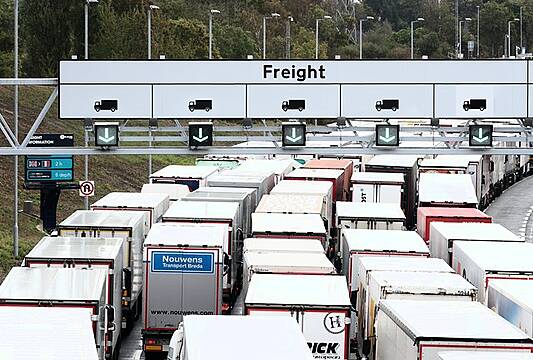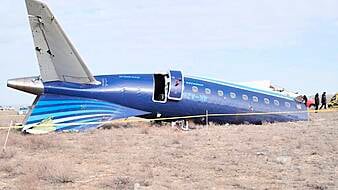Northern Ireland will not be ready to conduct checks on certain goods moving between Britain and the province from January as required by the Brexit divorce deal and is exploring contingency plans, an official report warned on Friday.
The National Audit Office (NAO), which reviews government spending, added that all UK borders would face widespread disruption when Britain finally leaves the European Union after COVID-19 hits its preparation, whether or not it strikes a free trade deal with the bloc.
From Jan. 1, exporters will need to file customs and safety declarations, even if Britain does secure an agreement.
However, the NAO said ports now have little time to integrate or test their systems with the government's new IT services, and there are still not enough customs sites or customs brokers to help industry adapt.
"Disruption is likely and government will need to respond quickly to minimise the impact," said NAO chief Gareth Davies.
'Very high risk'
One of the most challenging areas will be Northern Ireland which will require some goods from the rest of the UK to be checked in order to protect trade with EU member the Republic of Ireland.
The NAO said the department responsible for the systems and infrastructure to undertake the checks on animals and plants now believes the work will not be ready in time.
The report added that the customs office has made good progress on the issue but acknowledges that it remains "very high risk". "It is in the process of identifying alternatives if it cannot put its plans in place by 1 January 2021," it said.

Another area of concern involves a key government plan for moving goods in one transit movement across several EU countries which many trucking companies are expecting to use. The report said it would be challenging to deliver this.
It also says significant work needs to be done by the customs office to cope with the expected 270 million customs declarations a year.
In its defence, the government says it has given 84 million pounds to train customs intermediaries, phased in paperwork demands for imports and boosted logistics for critical goods.
It also warns, however, that 7,000 trucks could be held in queues in Kent, southeast England, if traders are not ready. The Bank of England said on Thursday GDP was likely to suffer a 1% hit from the trade changes, even if a deal were secured. Reuters







